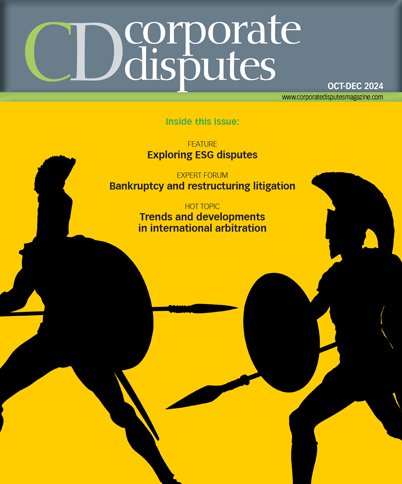THE CASE FOR ARBITRATION IN FINANCIAL DISPUTES
In the dynamic world of commercial finance, a significant shift is taking place in the realm of dispute resolution. While arbitration has long been a cornerstone in sectors such as employment, labour and construction, financial institutions (FIs) have traditionally relied on the court system to settle their disagreements. However, this landscape is rapidly evolving as more lenders recognise the myriad benefits of arbitration.
The rise of arbitration in financial services
2023 marked a pivotal moment for arbitration in the financial sector. For example, the American Arbitration Association (AAA) handled 1634 financial services cases, its highest volume of case filings since 2015. This underscores a robust growth trajectory, evidenced by a notable 291 percent increase in AAA case volume over the past eight years.
The arbitration boom is not happening in a vacuum. It is exploding alongside a surge in federal court finance disputes. The dual rise in both arbitration and litigation over the past eight years reveals not just a spike in financial conflicts, but a seismic shift in how these disputes are resolved. As Wall Street wrestles with increasingly complex disputes, arbitration is emerging from the shadows, transforming from an option of last resort into a formidable weapon in the financial world’s legal arsenal.
Bridging the expertise gap
One of the primary drivers behind this shift toward arbitration is the realisation that there is a significant shortage of judges with in-depth knowledge of commercial finance. While the judiciary is undoubtedly filled with competent professionals who can and do make fair decisions in financial cases, they often face a steeper learning curve when dealing with the intricate nuances of complex financial matters.
This expertise gap can lead to several challenges in the courtroom: (i) longer proceedings as judges familiarise themselves with industry-specific concepts; (ii) potential misinterpretation of complex financial instruments or agreements; and (iii) decisions that may not fully account for industry norms and practices.

